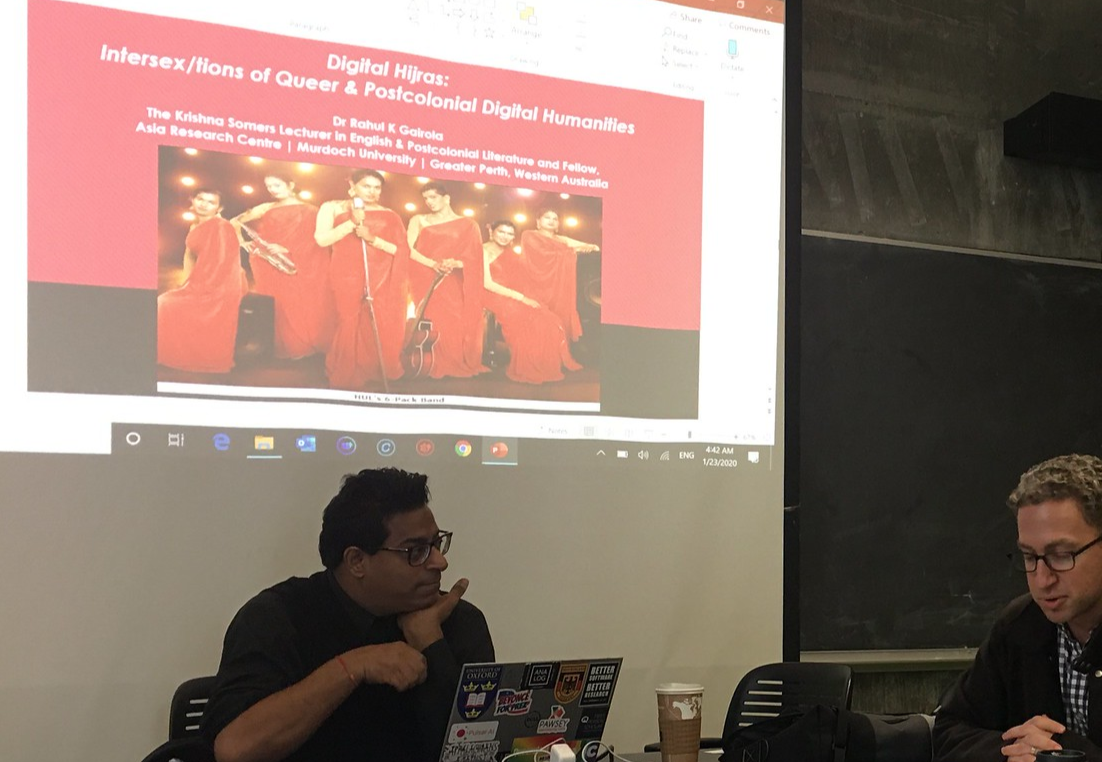Commons Conversation Revisited: Rahul Gairola

Digital Hijras: Intersex/ tions of Postcolonial and Queer Digital Humanities
BCNM was pleased to host Rahul Gairola (Murdoch University) for our first Commons Conversation of 2020. Drawing from his forthcoming book, “Digital Homes, Technology and Sexuality in the South Asian Diaspora,” Gairola offered insight on how digital identities come together in Indian publications. More specifically, the audience drew its attention to hijras’ (transgender women) identities on the social media platform of Bombay Dost, India’s first registered LGBTQ+ magazine.
At the beginning of the talk, Gairola defined a few key terms “that resist definition,” such as hijras, postcolonial digital humanities, digital humanities and queer digital humanities. From there, Gairola enlightened the attendees on how colonialist jurisprudence involving sexual subjectivity has shaped queer identities in India today. Two legislations were at the forefront: a Victorian penal code that made queer sex illegal and the assumption that crime could be inherited and passed down through generations.
The historical context shed light on the new vectors to identity formulation and connectivity. Gairola showcased screenshots from Bombay Dost’s Facebook page to offer perspective on its content curation and how they address the needs of queer South Asians. He ultimately concluded that online communities are mobile and fluid, continuously shaping real-life interactions. Digital subjects who stretch the limitations of gender also challenge spatial configurations in the digital public sphere — in and beyond South Asia.

